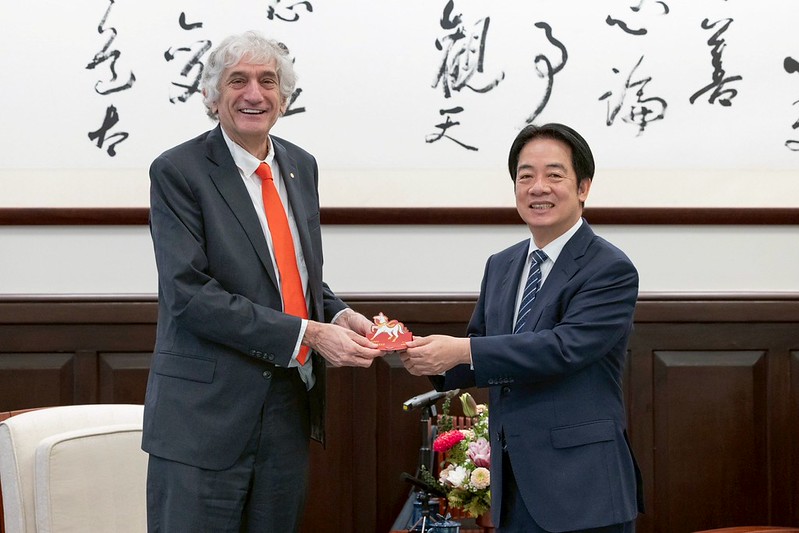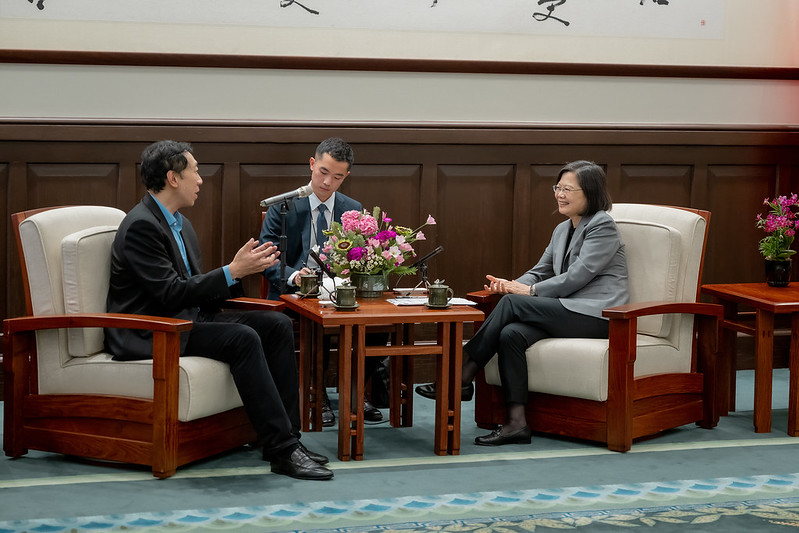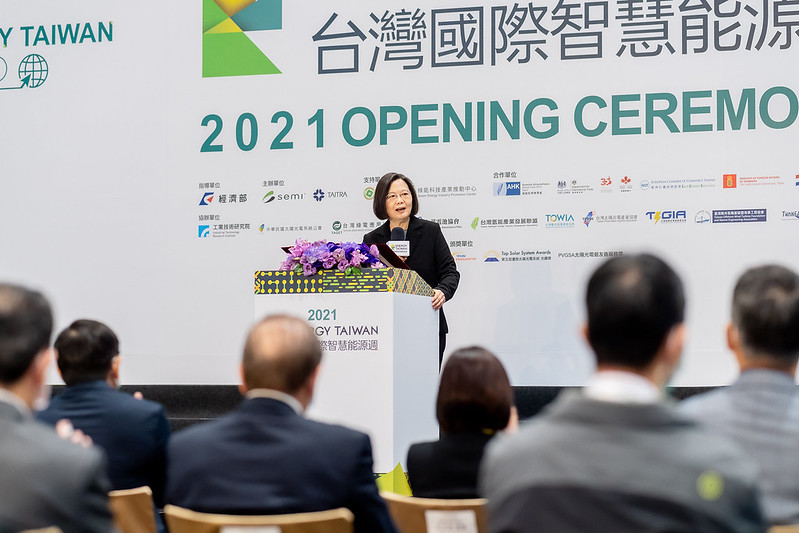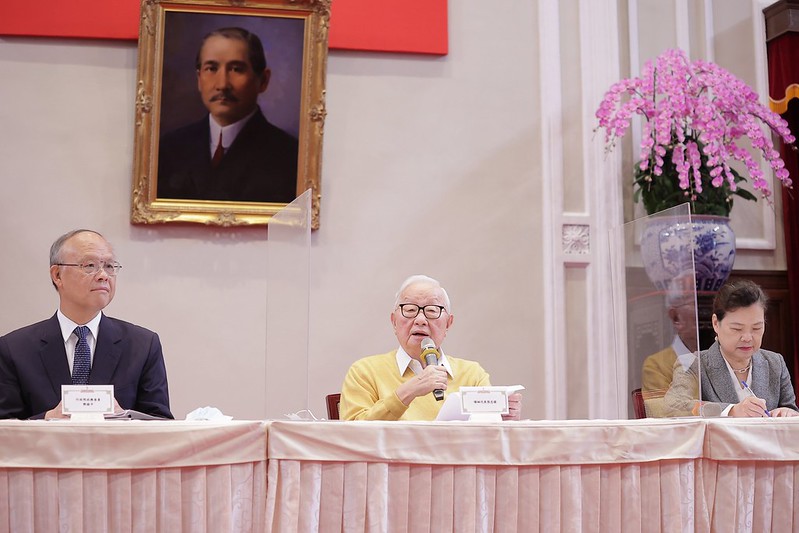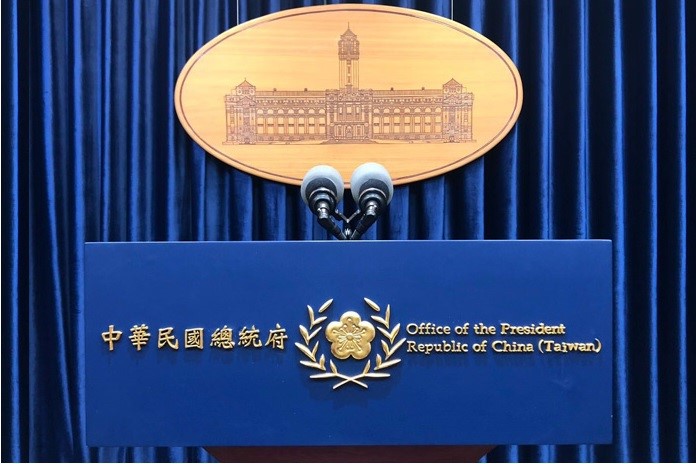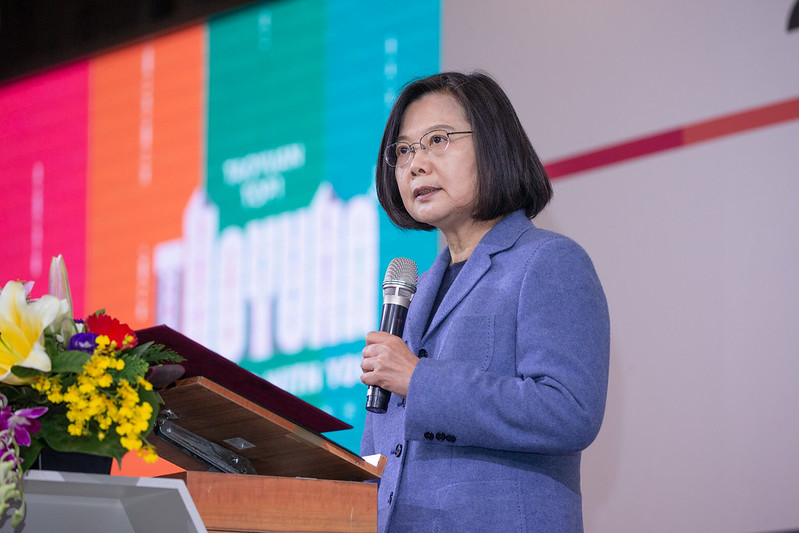News & activities
 News releases
News releases
On the morning of February 10, President Tsai Ing-wen attended the 2020 Intelligent Community Forum Top7 Global Cities Announcement/Conference in Taoyuan. She stated that over the past three-plus years, we have moved steadily toward our goal of becoming a "digital nation and smart island." In addition, we are also working to promote the development of smart healthcare, smart transportation, and the digital economy. Taiwan will enter the 5G era alongside major countries like Japan, Korea, and the United States, which will generate new solutions for city governance, she said.
A translation of the president's remarks follows:
I want to welcome our Intelligent Community Forum (ICF) delegates from around the world to Taoyuan, and to Taiwan, to share your experiences in developing intelligent communities.
First, I want to congratulate Taoyuan City, the Asian Silicon Valley Plan Executive Center, on its selection as the 2019 Intelligent Community of the Year. This shows that the international community recognizes Taoyuan City's efforts to apply smart technologies to city governance, and I also want to extend special congratulations to Mayor Cheng Wen-Tsan (鄭文燦).
Using technology to meet the needs of residents and spur a city's development is the definition of an "intelligent community." I strongly agree with Mayor Cheng that the best technology is not simply "the most advanced technology," it is also "the most useful technology." Taoyuan City has taken many concrete actions and made many achievements on this front.
Taoyuan City is using digital technology to allow people to participate more in the planning and implementation of policy initiatives and budgets. In addition, telemedicine is helping provide better healthcare to people living in remote areas.
Taoyuan City is also using video technology to help translate conversations for new immigrants and migrant workers, so that they can make themselves understood in real time. And startup incubators in Taoyuan City are creating industrial clusters in AR, VR, drones, and self-driving vehicles to accelerate the pace of innovation.
We hope that Taoyuan City's achievements can be expanded to other areas in Taiwan and spur progress throughout the entire country.
Over the past three-plus years, we have moved steadily toward our goal of becoming a "digital nation and smart island." In the face of today's digital revolution, we have actively invested resources, loosened regulations, encouraged innovation, and dedicated our full efforts to accelerating the pace of industrial upgrading and economic restructuring.
We have also continued working to build more complete broadband infrastructure to eliminate the urban-rural digital divide and provide more equal digital opportunities for all, so that a more diverse range of social groups can make their voices heard and take part in discussions and dialogue on public policy, regardless of where they live. At the same time, we are committed to building our cybersecurity infrastructure, linking central and local governments to protect the security of our digital nation achievements.
In addition, we are also working to promote the development of smart healthcare and smart transportation. We are using information services to quickly take stock of the entire city's resources and opportunities, as well as the problems and needs of local residents, so that we can allocate resources in the most effective way possible.
In response to the Wuhan coronavirus outbreak, for example, we have set up an official LINE account to ensure that citizens have access to the most accurate information, and can instantly find out how many face masks are in stock at nearby pharmacies. This has greatly helped to ensure proper availability of supplies needed to fight the outbreak.
Moving forward, Taiwan will continue to promote the development of the digital economy. With the age of 5G fast approaching, our government has already completed relevant legislation and drawn up policy initiatives and budgets. We will be issuing the first round of 5G licenses this year, which means that Taiwan will enter the 5G era alongside major countries like Japan, Korea, and the United States.
I firmly believe that the adoption of 5G will usher in new possibilities for intelligent communities and generate new solutions for city governance.
We intend to pool the capabilities of the central and local governments to continue promoting the development of intelligent communities. The valuable experiences all of you share with us at this forum will serve as an important reference for us as we implement policies. Once again, I want to thank all of our distinguished guests for being here. I wish you a successful conference, and I hope you all learn a great deal from one another. Thank you!
After giving her remarks, President Tsai and those present took part in the initiation ceremony for a smart city service platform. ICF Co-Founder and Chair John Jung and Taoyuan City Mayor Cheng were also present at the event.
After the event, President Tsai took questions from the media. Commenting on next week's WHO Global Research and Innovation Forum, where Taiwan will be invited to participate online, the president stated that "online participation" is just a first step, and we will continue working to achieve substantive participation. She also took the opportunity to thank the many diplomatic allies and major countries that have recently spoken up in support of Taiwan.
Commenting on China's dispatch of several military aircraft to circle Taiwan in the midst of the Wuhan coronavirus outbreak, President Tsai stated that preventing the spread of the coronavirus outbreak is foremost in people's minds. She stated that people around the world are closely following the outbreak in China, and they have quite a bit to keep them busy. She expressed her belief that this sort of military action at a time like this is both meaningless and unnecessary. She added that Taiwan nevertheless scrambled F-16 fighter jets to shadow the Chinese aircraft the entire time they were in the air near Taiwan, and we will continue to monitor conditions in the Taiwan Strait. She asked that citizens rest assured that we are constantly monitoring and updating the situation, and we will continue to strengthen our national defense while upgrading cooperation with other countries.
The president also reminded China that the current most important task is to bring the coronavirus outbreak under control as quickly as possible and relieve the tension that people are feeling throughout the region and the entire world.
US Secretary of State Mike Pompeo recently gave a speech listing numerous examples of China's suppression of Taiwan's exchanges with US state governments, and reminded state governments not to ignore concerns regarding US national security, the economy, and freedoms because of China's economic incentives. President Tsai thanked Secretary of State Pompeo for his outspoken support and his reminder that US state governors not to bow to China's pressure. She expressed her belief that this kind of behavior, and the continued suppression and blocking of interaction with Taiwan, will not only fail to achieve China's objectives but will increasingly erode China's image. This, she said, is something that China should truly reflect on and reevaluate.
